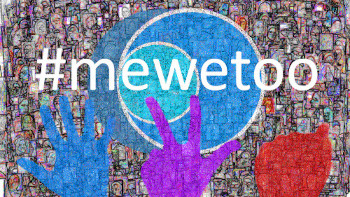Measles Makes a Comeback in the USA
The U.S. is currently enduring its worst measles outbreak since 1992, with 1,288 confirmed cases reported across 38–39 states as of July 2025 (The Guardian). Three deaths - all among unvaccinated individuals - have been recorded, including two children in Texas and an adult in New Mexico.
Why Now?
- Dropping vaccination rates. MMR coverage among kindergarteners declined from ~95% before the pandemic to around 92.7% in the 2023–24 school year - a critical erosion of herd immunity (CDC).
- Imported and community transmission. The West Texas outbreak began in January 2025 following international importation and spread rapidly through under‑vaccinated communities CDC.
- Vaccine skepticism. Experts link rising vaccine hesitancy to the dismantling of immunization advisory structures and increased promotion of unproven treatments under the current HHS leadership (The Daily Beast).
The RFK Jr. Effect
Upon assuming the role of HHS Secretary in 2025, Robert F. Kennedy Jr. took several controversial steps:
- Dismantled key advisory panels, including the CDC’s Advisory Committee on Immunization Practices, raising deep concern among medical experts.
- Shifted messaging away from standard immunization protocols, endorsing unconventional remedies like cod liver oil, vitamin A, and antibiotics - approaches with no proven track record against viral diseases.
- Downplayed the severity of the outbreak: despite CDC data showing no flattening in Texas, he claimed infection rates were leveling off (FactCheck.org).
- Mixed signals on vaccine safety: while he asserts support for vaccination, he also repeatedly questioned long‑standing science, suggesting natural infection provides better immunity.
Public health officials, including Senate Minority Leader Chuck Schumer and leading experts, warn these actions have undermined confidence in vaccines and contributed directly to the outbreak’s severity.
The Toll So Far
- Health impact: Of measles cases, roughly 13% led to hospitalizations, with three deaths so far .
- Geographic spread: Originating in West Texas, the virus has now affected over 38 states - from Texas and New Mexico to Illinois, California, and New York (New York Post).
- Demographics: Over 90% of cases were unvaccinated or had undetermined vaccine history, with around 3% of cases occurring in fully vaccinated individuals - none of which resulted in serious outcomes (Ars Technica).
What Experts Recommend
- Rebuild trust and communication. Health experts urge HHS and CDC to restore transparent, consistent public messaging and resume regular press briefings .
- Restore advisory bodies. Re-establishing scientific panels will help ground policy decisions in evidence rather than ideology.
- Prioritize vaccine outreach. Federal funding and local efforts must focus on increasing MMR uptake, especially in communities where rates have fallen below the 95% threshold .
- Combat misinformation. Officials should directly address myths - particularly claims that natural infection is superior and that alternative remedies suffice.
The Stakes Are High
Measles elimination in the U.S. was declared in 2000, but outbreaks like the current one threaten to reverse decades of public health progress (CDC). Losing elimination status would signal endemic transmission - a setback with long-term consequences for child health, healthcare systems, and public policy.
In Summary
While measles is preventable through safe, effective vaccination, the ongoing surge is a stark reminder of the fragility of herd immunity. Under RFK Jr.'s leadership, divergent policy shifts, confusing messaging, and disregard for scientific consensus have worsened the crisis. To reverse course, HHS must recommit to evidence-based vaccination strategy and rebuild public trust - before preventable deaths and widespread outbreaks become the new norm.



 Report a concern
Report a concern

 Add Comment
Add Comment



